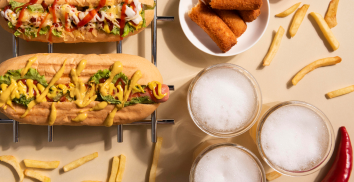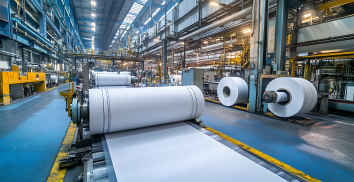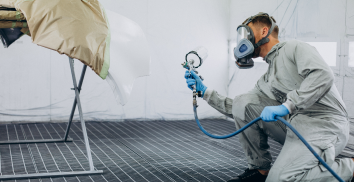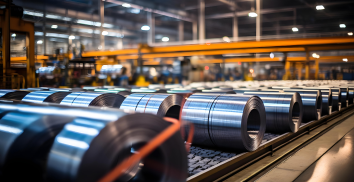Cleaning Solutions for Glass-Lined Reactor Equipment
In industries like chemical, pharmaceutical, and petrochemical, glass-lined reactors (glr reactors) are employed to carry out the chemical processes.
.jpg)

By Charles Pandian
In industries like chemical, pharmaceutical, and petrochemical, glass-lined reactors (glr reactors) are employed to carry out the chemical processes. Owing to the neutral nature of the glass towards the corrosive chemicals, they become the ideal choice as the reaction is carried out safely without any adverse effects. However, cleaning the glass-lined reactor is difficult because of the enclosed design of the reactor, vessel materials, and several other factors.
At Jetspray, we understand your pain points and have developed smart and innovative cleaning solutions to achieve perfection at cleaning tasks. In this blog, we discuss how to clean glass-lined equipment, the types of spray nozzles, and how to make the right choice to ensure operational efficiency, product purity, and regulatory compliance.
How to maintain Glass-Lined Equipment?
Glass-lined equipment has a metal shell with a specially formulated glass inner lining bonded into place. Problems like Impact damage rapidly heating or cooling the equipment too quickly can lead to thermal shock and cause damage to the equipment.
A maintenance program is followed, which typically involves cleaning and inspection to check for any small pinholes or chips in the glass lining. This kind of damage needs to be checked to prevent the corrosive substances from penetrating the glass and ultimately damaging the metal shell.
How to Clean a Glass-Lined Equipment?
The type of cleaning solution to be used depends on factors like cleaning time, the kind of cleaning agent used, the material with which your equipment is constructed, the design of the equipment, the reactor’s size, temperature and the mechanical impact.
A small-sized reactor may be quickly filled with a cleaning solution and then allowed to soak into the grime on the glass as the agitator will be used. Later on, the reactor is drained. For large-sized reactors, the soaking method can be time-consuming, leading to increased downtime delays and translating into the loss of profits.
Two spray nozzles are recommended to clean a small-sized reactor, and three or more are recommended to clean a larger-sized vessel.
Types of Spray Nozzles used for cleaning Glass-Lined Reactors
In order to achieve 100% efficiency in cleaning the glr reactors, the right nozzle needs to be chosen. Here is the list of the most common types of spray nozzles used:
Rotating Spray Balls:
A Rotating Spray ball depends on the mechanical rotation movement for better area coverage. It produces a better impact when compared to static spray nozzles. When the residue build-up is heavy, a rotating spray nozzle should be used for clean-up. Additionally, it saves time required for cleaning and improves efficiency compared with static spray balls.
Jetspray innovates cleaning solutions to meet your expected standards. We manufacture spray balls from premium imported materials to deliver an exceptional rinse.
Rotating Spray Ball Drizzle™ Series 6007
It is made from PTFE (Teflon) and can endure pressure from 1 to 3 Bar, with a recommended pressure of 2 Bar. It has a 360𝆩 spray pattern and can withstand temperatures up to 95℃. Its interior and exterior surface finish (electropolished) is 0.5µm.
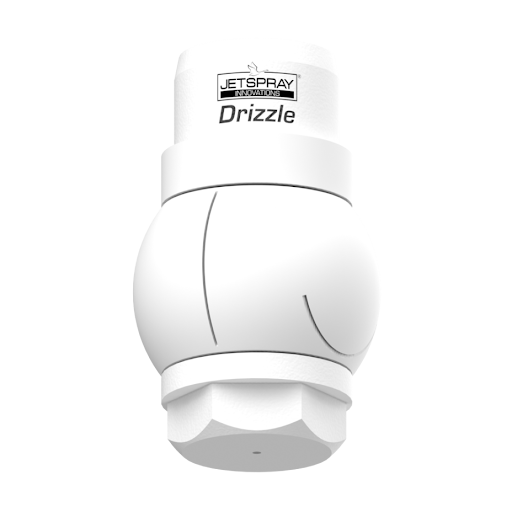
Rotating Spray Ball Drizzle™ Series 6008
It is made from PTFE (Teflon) and Hastelloy C22 (Rings). They can endure pressure from 1 to 3 Bar and have a 360𝆩 spray pattern that elevates the performance and efficiency standards. It can tolerate temperatures up to 130℃
Our Rotating Spray Ball Drizzle™ Series 6007 and Rotating Spray Ball Drizzle™ Series 6008 are the ideal rotating spray heads for effectively cleaning your glass-lined reactors.
For technical specifications, visit our website now.
How do you choose the right type of Spray Nozzle?
The choice of spray nozzle depends on multiple factors, such as:
- Type of Residue: If the residue is heavy and sticky, you need a high-impact rotating spray ball, whereas to get rid of light residues, static spray balls do the cleaning task effectively. Also, depending on the type of residue and its reaction with the cleaning products, you can determine how long the spray system needs to be used and the number of spray nozzles required for cleaning.
- Compatibility with the Cleaning Agent: The nozzle material used for cleaning must be resistant to the chemicals and detergents that make up the cleaning solution. A spray ball made with stainless steel and PTFE is resistant to chemicals and a good option to invest in in the long term.
- Spray Pattern Required: For a large-sized reactor, a 360° spray pattern is required. Usually, a rotating spray head does a better job than a static spray head.
- Flow Rate and Pressure: As per the cleaning intensity requirements, a nozzle should be able to bear the water jets needed to remove the tough residues. The flow rate and the droplet size of the cleaning solution also depend on the nozzle opening size.
Where to buy the Best PTFE Spray Balls?
If you are searching for the best Spray Heads vendor, JETSPRAY is the answer. At JETSPRAY®, we not only sell the products but also offer you customised solutions depending upon your requirements. Whether you need a static spray head or a rotating spray head, you can contact us to remove your sticky residues effortlessly.
To explore more about our innovative products, visit our website now.
Share on
Tags: nozzles, Static Spray Ball Drizzle

(1).png)

